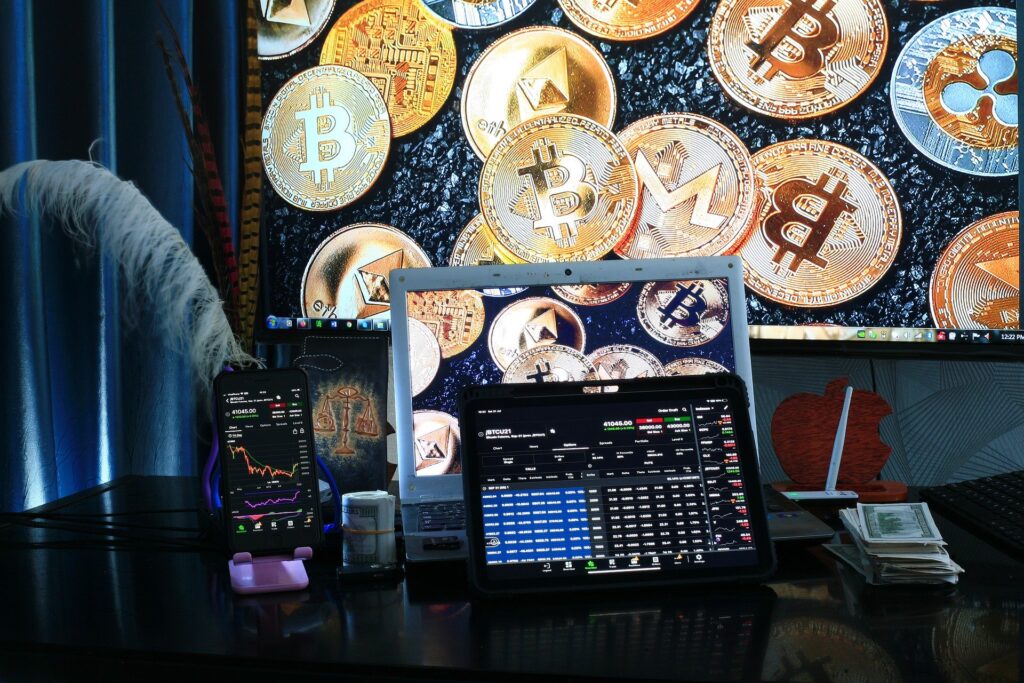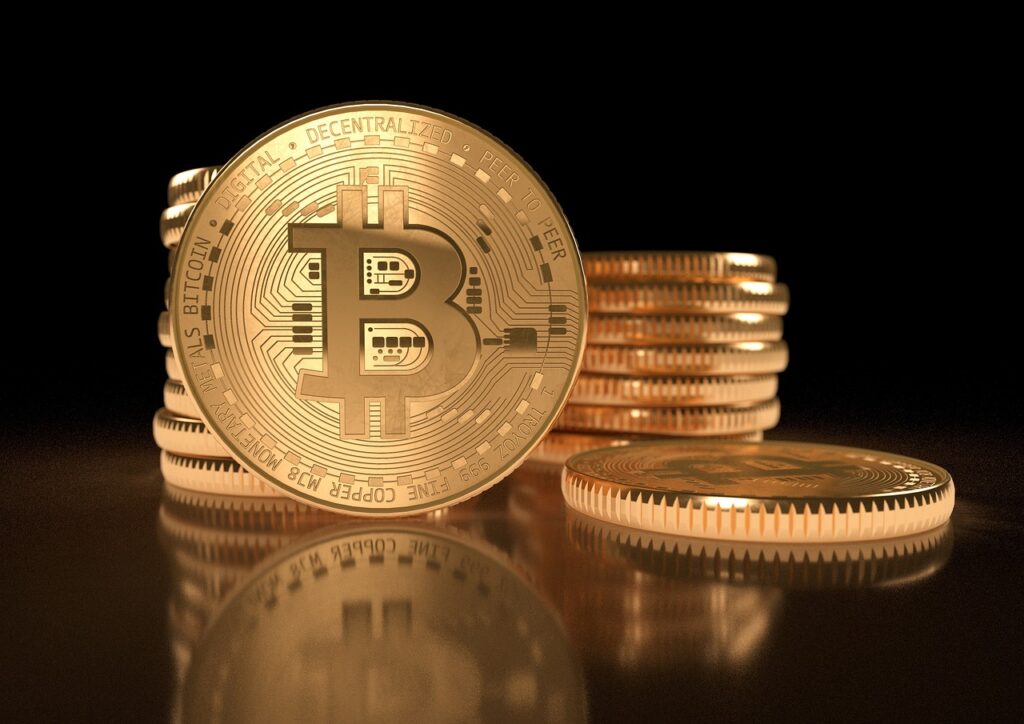Since 2011, the cumulative growth of Bitcoin has exceeded more than 20 million percent. Bitcoin which was at $ 0.3 then has touched a peak of $69,000.
So undoubtedly bitcoin has been the best performing asset class by miles, far exceeding gold and stocks. And the steam of the asset has not faded in all these years, although it has had its crests and troughs.
So, it is high time that we understand this asset class and make up our mind whether it is sharia compliant or not in its current form.
While the scholars have studied and reviewed the structure of this asset a lot still remains to be explored and understood, considering that the technology is new and evolving. A lot views expressed about the nature of the asset seem to be based on incomplete information and incorrect generalization.
Like with a lot of issues of modern-day finance and economics and being a new innovation, the exact parallels of this are not found in shariah. So, in order to arrive at a decision such matters are resolved based on qiyas (analogy) and ijtihad (consensus).
It is note-worthy to point out that most of the Asian scholars have rejected the idea of bitcoins and crypto currencies being sharia compliant (we will discuss the reasons ahead), it is mainly the European and North American scholars who have accepted this as a sharia compliant asset class.
Let’s us now discuss and rationally analyze the objections raised by the scholars for Crypto assets to be non-complaint or haram and the counter arguments proposed by other set of scholars.
The first and the foremost objection that the scholars raise is that the Crypto assets are nothing tangible and it is not something that is in physical existence. It is something that has been created out of thin air from nothing and holds no value in the ‘real world.’

Let’s analyze this objection. Agreed that cryptos are not tangible. But just because they are not tangible it does not make them haram.
By that logic all kinds of computer programs, software etc. like MS Word, Excel, Windows Android, are intangible but these are not considered haram. We buy and sell these programs and software but no scholars have objected to their buying and selling because these are intangibles. Similarly, intangibles such as goodwill, Intellectual Property Rights, Patents etc. have been recognized by AAOIFI as assets and specific accounting principles are available to account these assts in the balance sheet. So, if these assets are not considered haram for being intangible why are cryptos being singled out.
The second objection that scholars have is the crypto ‘currencies’ are not recognized by any Government and hence are not sharia compliant.
First of all, it needs to be understood that the crypto assets are called crypto coins or token, it is not created as a currency per se, but its usage has made it prevalent as such. Additionally, being recognized by the government is not a condition for something to be sharia complaint or halal.
Like for example during the times of Prophet Muhammed (PBUH) goods like salt, dates, barley etc. were used a currency for common transactions, however these commodities were not standardized or issued (produced) and controlled by the then governments as the modern-day currency.
So, this objection also does not seem reasonable that just because the governments don’t recognize it, the same is haram.
A logical explanation for this objection although, comes to mind is that the scholars of course do not want to support something that is not recognized by the government and in a way be seen as not following the law of the land or be seen allowing/encouraging something that is not fully supported by the government.
The other major objection raised by scholars is that the crypto assets do not have an intrinsic value of their own like gold or silver.

To understand the concept of intrinsic value of let’s take an example. For a collector of antiques a certain old watch may hold significant value and worth, while for a layman it may be not be worth anything.
So basically, value of a good or service is what the beholder attaches to it. So, for someone who is not interested in cryptos, it may have no value, but for millions of people dealing in crypto coins it has a value and worth which is realized and reflected through their regular trading across exchanges.
Furthermore, the current fiat paper money also does not have any intrinsic value, but has a perceived value derived from the backing of the government of a country. This was evident from the recent de-monetization exercise in India, wherein currency notes worth billions of rupees were declared worthless suddenly, which made them loose their value suddenly. This explains that the fiat currency also has no intrinsic value of its own.
But paper fiat currency is not considered haram.
Another criticism of the Cryptos is that these are used for illicit purposes and it is a tool for money laundering which in turn supports criminal activities like terrorism, smuggling etc.
Here we need to understand the distinction between technology and its use. Crypto coins are the product of block chain technology which can be used for different purposes. Like the internet is a technology which is used for both illegitimate and legitimate purposes. Same goes with the conventional money which is created for legal and legitimate purpose but has been used for all kinds for illegal activities. But that does not make currency notes in itself illegal.
So by the above analogy, if someone is using the crypto assets for illegal purpose that does not make the crypto assets haram in itself.
Another reason given for crypto to be haram is that trading in these is akin to gambling.
Here again like all other legitimate assets and commodities, its usage will decide if it is haram or halal. If currency notes are used for gambling that does not make the note haram but the act of gambling, similarly if gamblers/bettors are betting on happening of rain and wining of a team in cricket match these things do not become haram.
If trading in crypto currency is done as gambling like for example by pumping and then dumping coins (which is also considered illegal) it is indeed a form of gambling. But that should not make the crypto asset in itself haram.
Similar practice is adopted by hoarders in some commodities like wheat coal etc, but the act of hoarding is considered haram and not the underlying commodities.
Cryptos as considered very risky and hence categorized as haram.
Here again just because a currency is risky does not make haram. Risk is present in all forms of business in varying degrees. If someone enters into a business without considering its risks, that becomes a very risky business. Similarly, if one starts to trade in shares, gold, wheat, fruits or cryptos without understanding the risks of that market the whole business becomes very risky. No matter how halal or pure it is.
It is agreed that crypto trading is risky as the market is very volatile and has huge swings but that in itself should be qualification for it to be haram.
Cryptos are speculative and hence element of gharar is present.
Here again the technology and its purpose should be the cornerstone of its shariah compliance. While it is true that crypto assets are used for speculative purpose for trading in the markets but so are a lot of other products and commodities like shares, oil, copper, coal etc.
Like in share market if these assets are traded merely for speculation with no value creation like in futures and perpetual contracts, such transaction should be considered haram but not the asset itself.

Some scholars have even proposed a conspiracy theory and described crypto currency as a means and tool to enslave weaker economies in the future, without delving further into the details and providing justification to support their argument.
While it is difficult to refute a theory the basis of which has not been revealed, however it is well known that the basic intent behind cryptos/bitcoin is to decentralize financial transactions and remove the control of government over money. Something that has bothered the governments world over and for which they are trying to find a solution and bring it under their control once again.
Taking, all the above discussion into consideration it seems that the block chain technology and its by-product crypto have not been understood well and the reasons provided for it to be haram do not clear the test of logical and shariah supported reasoning.
If we put bitcoin to the test of definition of Maal as per Islamic Sharia, it fits the bill and has the feature of mal viz – Commercial value, Ownership, Possession, Transferability.
While the author argues in favor of crypto currency being halal, and identifies with the scholars view considering it halal, however there is a word of caution. The acceptance should not be considered a blanket approval for all types of crypto assets.
Like in share trading there are certain rules to be followed and some types of transactions to be avoided.
While dealing in crypto assets the following need to be considered:
- The purpose with which the coin /token /NFT has been issued should be shariah compliant.
- Like in shares trading- futures, perpetual contracts and leverages are haram.
- Pumping and dumping of cryptos is akin to gambling and is therefore haram.
In conclusion
A lot is being is said and developed around the crypto currency world. It is high time that we learn and understand about this upcoming technological innovation which has already taken the decentralization to new paradigms. It shows promise as a means to break away from the riba based banking structure.
We need to understand this technology now, we need to raise legitimate questions with our scholars, encourage ourselves and others to learn more about this, discuss with the experts, arrange seminars and presentation to learn and disseminate information.
And most importantly form an informed opinion based shariah based logic and reasoning.



